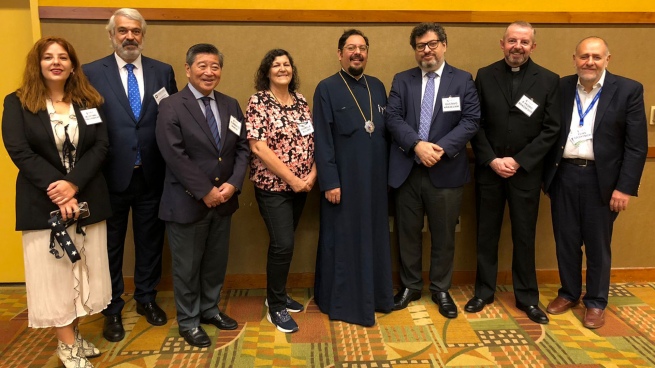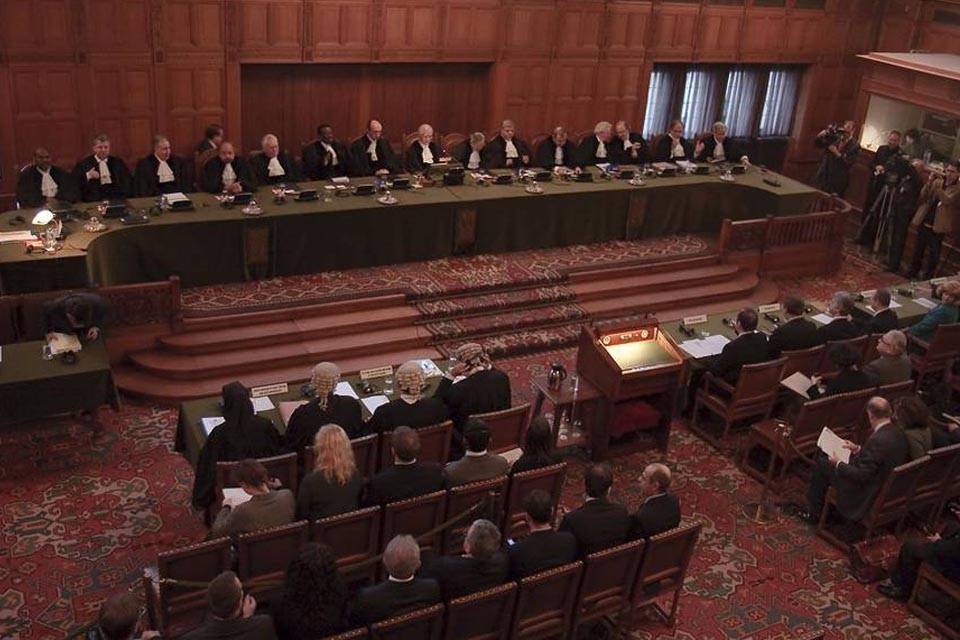Unity in religious diversity was achieved at the recent Summit of the Americas held in the city of Los Angeles, United States.
Catholics, Anglicans, Lutherans, Methodists, Christian Reformed, Baptists, Evangelicals, Adventists, Orthodox Christians, Latter-day Saints, Jews, Muslims, Baha’is, Indigenous, Afro-Latin American and Caribbean, Hindus, Buddhists, Sikhs, and others , including youth representatives, met in parallel to the IX Summit.
At the Hilton Hotel, on Monday 6 in the afternoon, it was the first meeting with relaxed conversations in preparation for the following two days, Tuesday 7 and Wednesday 8, where they developed the face-to-face debate, and at the same time virtual via the Zoom platform, on “the concerns and needs” of the situation in the Western Hemisphere.
“In the shadows of the extraordinary COVID-19 pandemic, the war in Ukraine and elsewhere, the looming food and fuel crises, and the ongoing crisis in movement of refugees and displaced people around the world, but of particular concern in the western hemisphere”, thus begins the document of the II Interreligious Forum of the Americas (called by its initials FIDELA) in support of the Summit of Presidents of the Americas.
The document with the recommendations to the governments was reflected, prayed and meditated, among more than a hundred religious leaders and representatives of faith-based organizations, which included policy experts from all over North, Central and South America, and Caribbean.

The most pressing concerns of religions in the West are “the deficiencies in the protection of human dignity and the need for decisive action that really gives a preferential option to the most vulnerable.”
Among the central areas of governments, they highlighted in health systems: “The COVID-19 pandemic has demonstrated the need for urgent reforms, which includes the addressing ongoing immunization issues, transnational preparedness for future pandemic events, improvements to ensure equitable and quality access, and the need to ensure that mental health services are comprehensive and comprehensive in health care systems. Health”.
For the millions of refugees or displaced people, they concluded that governments “must pay attention to the root causes of the problem, the urgent needs of those affected and the finding of long-term solutions.”
Regarding the environmental chapter, from FIDELA they pointed out to the presidents of America that they must “implement integral solutions”, with special attention to the “Climate change and Amazon deforestation”the great lung and freshwater reserve of the world made up of nine countries, with the leading role of Brazil as the main owner of the largest jungle biome on the planet.
Education was another of the pillars of the deliberations, from which came the request that governments “pay attention to the educational opportunities of children, especially those without full access to the Internet.” Due to the contents, they considered from FIDELA that it should be aimed at the “Promotion of democratization and addressing the challenges of violence and corruption”. Regarding discrimination, they called for “its elimination for reasons of race, religion, gender, indigenous heritage and sexual orientation, ensuring that equity is achieved for all.”
As the last axis of the document agreed by all religions was “continuous vigilance in the protection of freedom of religion or belief and freedom of expression.”

Télam spoke with the representative of the Catholic Church. The Argentine Priest Peter Brassescodeputy secretary general of the Latin American Episcopal Council (CELAM), assured that “It was very important to share experiences and commit ourselves to work on the coincidences, which were many, between very diverse religions” and added that the document has already been delivered to the bishops of CELAM at its headquarters in the city of Bogotá, Colombia.
In addition to the priest Brassesco, the religious Argentines in light of the Summit of the Americas were: Melody Amal Khalil Kabalan, president of the Islamic Institute for Peace and member of the Network of Youth of Religions for Peace of Latin America and the Caribbean ( LACYN); Professor Juan Navarro Floria, president of the Argentine Council for Religious Freedom (CALIR); Humberto Shikiya, Vice President of the Regional Ecumenical Center for Advisory and Service (CREAS); Gabriela Mulder, former president of the Alliance of Reformed and Presbyterian Churches in Latin America (AIPRAL) and coordinator of the Network of Women of Faith in Latin America and the Caribbean (LACWFN); Iosif Bosch, Greek Orthodox Archbishop of Buenos Aires; Gustavo Kraselnik, rabbi representative of the Latin American Jewish Congress (CJL) and head of the Interreligious Committee of Panama (COEPA); Elias Szczytnicki, Secretary General of the Latin American and Caribbean Council of Religious Leaders – Religions for Peace; and Piero Liebman, executive director of the Federation of Jewish Youth of Latin America (FeJJLA) and coordinator of the Religions for Peace Youth Network of Latin America and the Caribbean (LACYN).
















